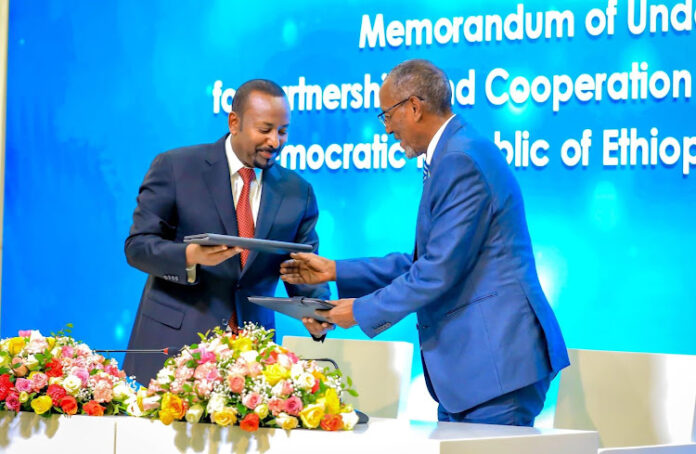
A virtual summit of Arab foreign ministers is set to discuss the implications of a contentious Memorandum of Understanding (MoU) between Ethiopia and the breakaway territory of Somaliland on for January 17, 2024.
The Arab League’s Assistant Secretary-General, Ambassador Hossam Zaki, emphasized the emergency meeting’s attention to the fallout from an agreement that several parties have deemed illegitimate.
At the beginning of the year, the landlocked nation of Ethiopia began the legal process of gaining access to the sea. However, in the process, many international and regional actors—including the US, China, Saudi Arabia, the EU, and the African Union—condemned the deal, backing Somalia’s territorial integrity as per officially recognized borders.
Zaki pointed out that earlier attempts to hold the meeting in person had failed, which is why it made sense to use a video conference.
As the first mover, Somalia produced an explanation memorandum in which Zaki stated that Mogadishu’s position was widely supported and agreed with by all Arabs.
The permanent representative of Somalia at the Arab League and envoy to Egypt, Ambassador Elias Sheikh Omar Abu Bakr, emphasized the need for an Arab response to Ethiopia’s “unilateral measures,” calling them a threat to Arab national security and Red Sea navigation.
Stressing the need for “adhering to good neighborliness for regional peace, security, and stability,” he urged Arab countries to protect Somalia’s sovereignty in compliance with international agreements and regulations. He warned of the possibly disastrous ramifications of Ethiopia’s actions in the Horn of Africa region.
The conference emerges in response to an accord made on January 1, 2024, providing Ethiopia access to a 20-kilometre stretch of Somaliland’s coast for 50 years through a “lease” deal. By taking this action, Ethiopia is able to regain operational rights in the northwest Somali region of the Red Sea, a seaport that it had previously lost when Eritrea declared its independence in 1993.
Even though Ethiopia believes the deal permits the establishment of a permanent naval post and commercial maritime services in the Gulf of Aden, Somalia has rejected it since Somali-land, which broke away from Somalia in 1991, is not recognized internationally.
According to the Arab League, the emergency meeting, requested by Somalia and supported by 12 Arab countries, will be chaired by Morocco, the current president of the regular session of the League.














